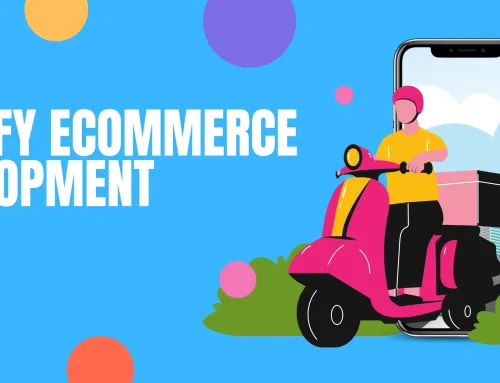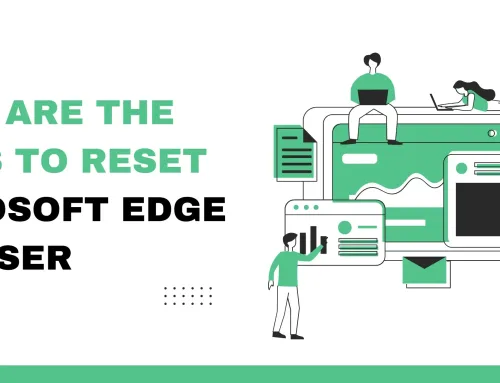Introduction
More than an updated digital Rolodex, B2B CRM software is now a powerful strategic weapon that enables businesses to create, manage, and deepen their relationships with clients throughout the entire lifecycle. In today’s ultra-competitive, digitally powered market, B2B CRM solutions are enabling organizations to optimize the interactions that mean most, achieving more streamlined, personalized engagement and long-term loyalty as never before.
Here, we dive into the history and value of B2B CRM software, discussing how it’s transforming the way businesses interact with customers in contemporary markets by leveraging automation, artificial intelligence (AI), data analytics, and powerful integrations.
Understanding B2B CRM Software in 2025
B2B CRM software is designed to deal with complicated, long-term sales cycles, numerous stakeholders, and unique relationship plans. The dynamic-birth circuit project with several stakeholders was thus feasible. There have been many articles written about B2B vs. B2C sales, and how to manage your CRM, but unlike B2C CRMs that support high-volume,low-touch interactions, B2B CRM software focuses on nurturing fewer but more strategic relationships with high-value clients.
The world is a changed place in 2025. These cloud-native platforms, AI-driven insights, real-time data sync, and automated workflows are not a luxury anymore – they are a necessity. Companies that persist in working with legacy systems are at risk of being left behind by companies that use intelligent CRM tools that help deepen client trust and shorten the path to revenue.
The Shift from Contact Management to Strategic Relationship Building
Historically, CRMs have been nothing more than glorified address books. But today’s B2B CRM software is way more than that. Today, it is the B2B sales and marketing CNS, accelerating sales across a company’s entire lead-to-close process, and doing things never before possible.
This is reflected in three main ways:
360-Degree Customer Views
Every client interaction — email, call, meeting, support ticket, visit to the website — is tracked and aggregated. This single source of truth means your reps will always be equipped with the context to make their outreach personal and relevant.
Sales and Marketing Working Together as One
Marketing can customize campaigns based on sales data, and sales can act on marketing insights and engagement scores, providing a connected customer experience.
Customer Success as a Core Competency
B2B CRM platforms include features to track health scores, trigger renewal alerts, and avoid churn today. There is a shift from churning to building sustainable, long-term value.
AI and Automation: The Unseen Salesforce of CRM
Artificial intelligence and automation are two of the most game-changing elements of B2B CRM software in 2025. These technologies are making CRMs intelligent, fast, and proactive.
Predictive Lead Scoring
AI algorithms process historical customer behavior, intent signals, and demographic data to score leads more effectively. This means that sales reps will spend their time chasing down leads that are most likely to convert.
Automate Outreach And Follow-ups
Workflows help companies send timely, relevant messages triggered by customer behavior. Whether it’s a welcome email, a reminder about a demo call, or a follow-up on a proposal, automation makes sure nothing falls through the cracks.
Intelligent Forecasting
Artificial intelligence-enabled forecasting tools can forecast deal closings, revenue patterns, and customer churn so that the management has all the necessary information it needs to make data-driven decisions without any doubt.
Intelligence in Chatbots and Virtual Agents
Modern CRMs are now incorporating AI assistants that can take initial questions, schedule meetings, and instantly display account information, allowing human reps to concentrate on higher-value work.
Deep Personalization: Creating Experiences, Not Just Sales
B2B buyers now demand the same level of personalization that B2C buyers expect. B2B CRM software enables businesses to create extremely personalized experiences that build engagement and eventually loyalty.
- Account-Based Marketing (ABM): By integrating with CRMs, high-value accounts can be segmented, and account-driven campaigns can focus on every client’s personal pain points and goals.
- Real-Time Content Suggestions: Using the industry of the client, past interactions, or the stage in the funnel, CRMs can provide case studies, whitepapers, or webinars as recommendations.
- Custom Dashboards: Your company’s internal team members only view what they need to for their role, such as sales pipelines, customer tickets, or contract renewal dates, which saves you time.
Real-Time Data and Analytics: The Driving Force behind Strategic Decisions
Data is the gasoline, and analytics is the engine for any powerful B2B relationship strategy. Modern CRM platforms let you build great dashboards and reports that are much more than just a few basic metrics.
Customer Lifetime Value (CLTV) Analysis:
Companies can see which customers are the most profitable and dedicate efforts accordingly.
Deal Velocity Tracking:
Understanding how fast transactions move along the pipeline aids in the identification of bottlenecks and enhances conversion rates.
Engagement Metrics:
From email open rates to webinar attendance, CRMs gather engagement statistics to aid in the refinement of communication plans.
Connecting with outside data sources and business intelligence systems, advanced CRMs offer even more insightful analysis of consumer behavior, market trends, and revenue predictions.
Seamless Integration Across the Tech Stack
By 2025, a CRM that doesn’t automatically plug into your existing suite of tools is a disadvantage. Today’s best-in-breed B2B CRM software provides robust support for APIs, native integrations, and plug-and-play compatibility with:
- Email clients such as Outlook and Gmail
- Platforms that promote marketing automation, such as HubSpot, Marketo
- Support desks such as Zendesk or Freshdesk
- Project management tools such as Asana or Monday. com
- ERP and accounting systems
This unification enables data consistency, eliminates manual effort, and allows an overall better picture to be built up for each customer.
CRM For Mobile: A Solution to Power Sales on the Fly
The need to access your CRM on mobile has never been more important, thanks to remote and hybrid work. Sales reps should be able to access client data, log calls, send proposals, and update pipeline,s all from their mobile phones or tablets.
Modern B2B CRMs offer:
- Sync among devices in real time
- Voice-to-text data entry
- Alert push notifications – for high-priority events (like deal movement or client inaction)
- Offline mode for use in remote or low-connectivity areas
Mobile CRM enables field reps to be as effective on the road as they are at their desks.
Security and Compliance: Protecting Sensitive B2B Data
As data breaches and legislation such as GDPR, HIPAA, and India’s DPDP Act make headlines, CRM software must be designed with security as the foundation.
Some of what one will find in B2B CRMs of 2025 are:
- Role-based access controls
- End-to-end encryption
- What’s there in the audit logs and compliance reports
- International clients can store their data in a variety of places
Vendors are also adding AI-based anomaly detection to highlight suspect logins or unusual data movements.
Real-World Example: B2B CRM that Helped a SaaS Company Grow 3x
Take a midsize SaaS company with high churn and customer communications that was all over the place. B2B After Top Features of Modern CRM Solutions for B2B
- They consolidated all client activity in a central dashboard.
- Computer-generated reminders to renew or success plans boosted retention.
- Predictive analytics detected upsell potential, resulting in larger deals.
- Marketing had real-time sales data guiding their outreach.
The result? A 40% increase in revenue retention and a 3x expansion of ARR in 18 months.
What to Look for in a B2B CRM Software in 2025
If you’re in the market for a new CRM, here are the features listed below:
- AI & Predictive Capabilities – Find CRMs that allow you to work smarter rather than work more.
- Customization Options – Everyone has their unique workflows, and your CRM should reflect that.
- User Experience (UX) – Easy-to-use, straightforward interfaces promote user adoption and efficiency.
- Scalable – Your CRM should scale as your business grows.
- Strong Ecosystem – Make sure it plays nice with your current software stack.
Conclusion: The Beginning of a New Age of Relationship Intelligence
In an age where the customer experience is the ultimate discriminator, the B2B CRM software system is critical in fostering meaningful, data-driven relationships. It’s no longer enough to manage contacts; you need to orchestrate experiences, anticipate needs, and enable every customer-interacting department to proactively deliver greater value.
Companies that adopt new and powerful CRM capabilities – automation, AI, analytics, integration, and personalization – will not just survive, but thrive in today’s changing B2B economy. Those that fail to do so risk becoming irrelevant in a world that requires smart engagement.
FAQs
Share your successes regarding how your CRM system has assisted you in increasing customer retention in your B2B company.
Answer:
A modern B2B CRM flags early churn risks, monitors customer health, and automates renewal processes. By utilizing CRM insights to proactively engage consumers, many companies note a 20–40% increase in retention.
What one quality do you search for in a B2B CRM system in 2025—artificial intelligence, automation, or integration?
Answer:
Most businesses now list integration at the top. A CRM that integrates easily with email, marketing tools, and support systems allows a consolidated client perspective—vital for long-term B2B success.
Have you employed predictive analytics in your CRM? If so, how did it affect your sales approach?
Answer:
Many B2B businesses have seen a sales revolution thanks to predictive analytics. Focusing efforts on high-probability deals, reps can increase close rates by 30% or more by rating leads on intent signals and historical trends.
Do you think automation takes second position to personalization in B2B CRM? Why or why not?
Answer:
Both matter, but personalized experiences in B2B win. Tailored experiences build trust in long sales cycles. Automation helps it by guaranteeing timely, pertinent engagement—the actual magic is personalizing, fueled by automation.
What one aspect of CRM adoption or integration challenges your team most today?
Answer:
User resistance brought on by subpar UX or lack of training is a typical stumbling block. Selecting an intuitive CRM with extensive onboarding tools and executive buying helps propel better adoption and long-term ROI.










